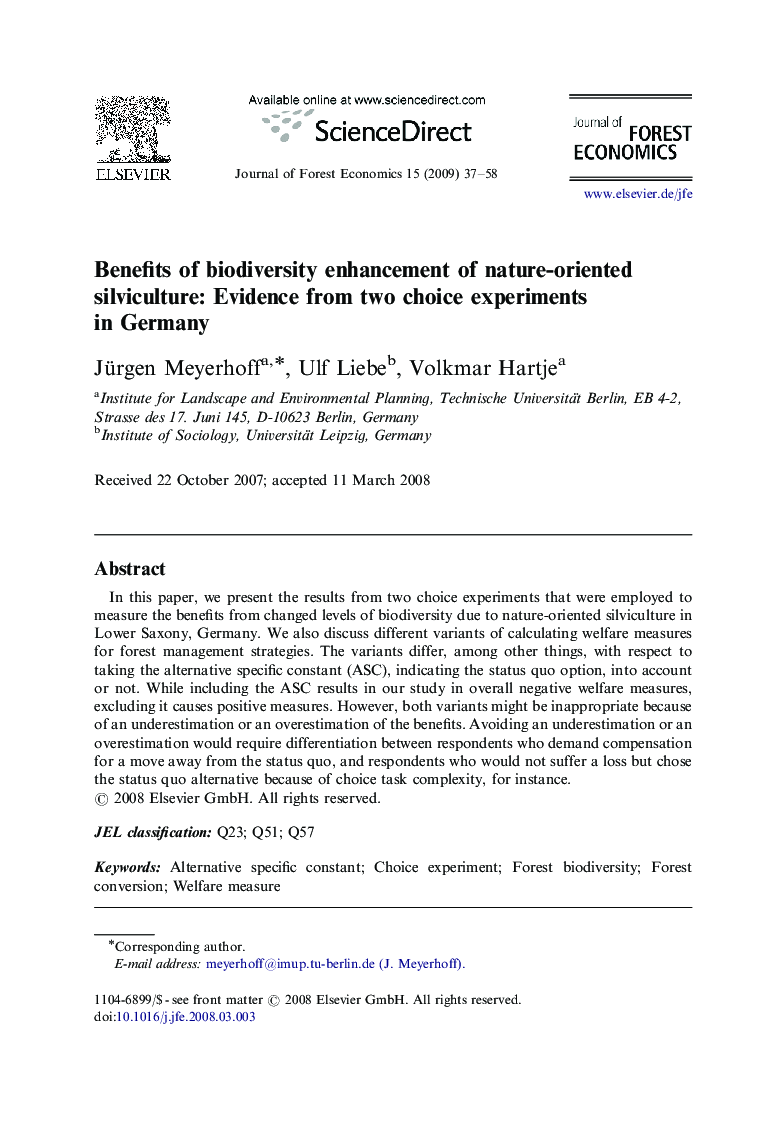| Article ID | Journal | Published Year | Pages | File Type |
|---|---|---|---|---|
| 92159 | Journal of Forest Economics | 2009 | 22 Pages |
In this paper, we present the results from two choice experiments that were employed to measure the benefits from changed levels of biodiversity due to nature-oriented silviculture in Lower Saxony, Germany. We also discuss different variants of calculating welfare measures for forest management strategies. The variants differ, among other things, with respect to taking the alternative specific constant (ASC), indicating the status quo option, into account or not. While including the ASC results in our study in overall negative welfare measures, excluding it causes positive measures. However, both variants might be inappropriate because of an underestimation or an overestimation of the benefits. Avoiding an underestimation or an overestimation would require differentiation between respondents who demand compensation for a move away from the status quo, and respondents who would not suffer a loss but chose the status quo alternative because of choice task complexity, for instance.
